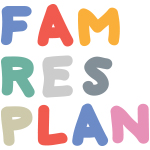Edukacijsko-rehabilitacijski
fakultet Sveučilišta u Zagrebu
[ Specifična obilježja
obitelji u riziku: doprinos planiranju
kompleksnih intervencija ]
Sudjelovanje na ESSCCO MEDITERRANEAN SCIENTIFIC CONFERENCE- 6.-7.6.2019., Rijeka
Ponedjeljak, 17. lipnja, 2019.
Na znanstvenoj konferenciji Educational systems and societal changes: Challenges and opportunities- MEDITERRANEAN SCIENTIFIC CONFERENCE koja se održala u Rijeci 6. i 7. 6. 2019. godine članice tima Gabrijela Ratkajec Gašević, Nivex Koller-Trbović i Anja Mirosavljević izlagale su rad u sklopu projekta naziva “SCHOOL SUPPORT TOWARD PUPILS WITH BEHAVIOUR AND LEARNING DIFFICULTIES FROM PARENT’S AND CHILD’S PERSPECTIVE”.
Više o konferenciji dostupno na ovoj poveznici.
Prezentacija je dostupna ovdje .
Sažetak rada:
The aim of this paper is to present those results of the scientific project Specific characteristics of families at risk: contribution to complex interventions planning, financed by Croatian scientific foundation (IP-2014-09-9515), which is oriented toward family resilience through researching behaviour and learning difficulties of children. Inductive approach to thematic analysis (Braun & Clarke, 2006) in analysing transcripts of interviews with family members, indicated that school and schooling are very important themes in everyday family life.
Until now, research participants became ten families with complex needs where at least one member (usually child) is included in social service or mental health interventions due to the behaviour problems. Results indicated that schooling is a key theme present throughtout the whole childhood, burdening children as well as parents. This is often the case where specific learning difficulties are present. Usually, at the beginning, these difficulties are milder while during schooling problems in learning and behavior/emotions become more intense (such as attention deficit, withdrawl, depression, low self esteem, epilepsy, social isolation or being a victim of bullying). Regading that, parents firstly seek help from school experts, and later on from experts working in other services. Althrought they seek for help, they don’t find nor understanding or help, and are usually left to cope with the problems on their own. In cases where schools ensured some kind of interventions, they were not matched with the type and intensity of problems and needs. Due to the long term existance of unresolved problems parents felt exposed and new conflicts, poor communication and difficulties in relationships arrised, as well as internalized or externalized behavioral problems of children.
Through thematic analysis following categories were isolated: Long lasting problems in schooling and learning; Absence of help from school and community services; Interventions inadequacy; Poor experiences with professionals and interventions; Long lasting problems and absence of help leads to stress and conflicts; Parents learn with their children every day and organize instructions; Fear for child wellbeing in the future; Great parental effort for minor results; Parents are burdened with unknowing what to do, Parental expectations and pressure on child leads to conflicts; Learning and behavioural/emotional difficulties becomes more intense; Family resilience is based on mutual love, closeness and interests; Family resilience is based on seeking and expecting help as well as on not giving up.
It is important to emphasize that in these cases a call for help and assistance often comes from parents, even from children. That means it is not necessary to prepare and motivate parents for interventions, so the level of school disinterest to assure help and support to those parents and pupils surprises.
Life pathways of these families clearly point to a direction in which contemporary school should intervene.
Keywords: family with complex needs; children with learning and behaviour difficulties, school support, perspective of parents and children; qualitative approach

